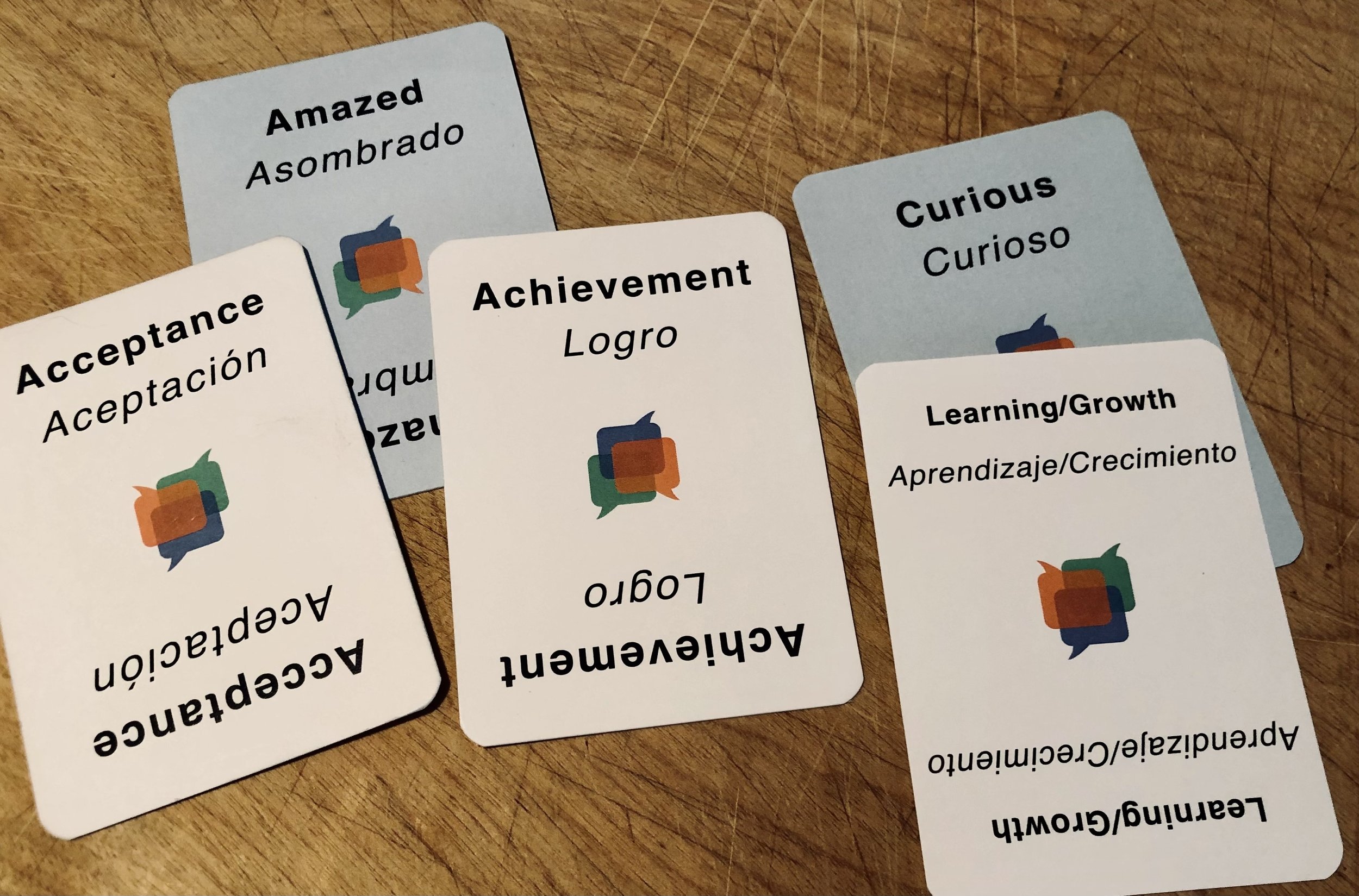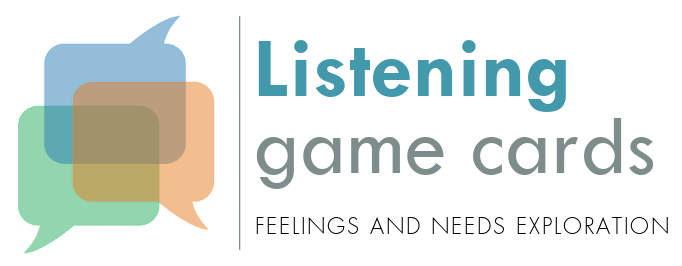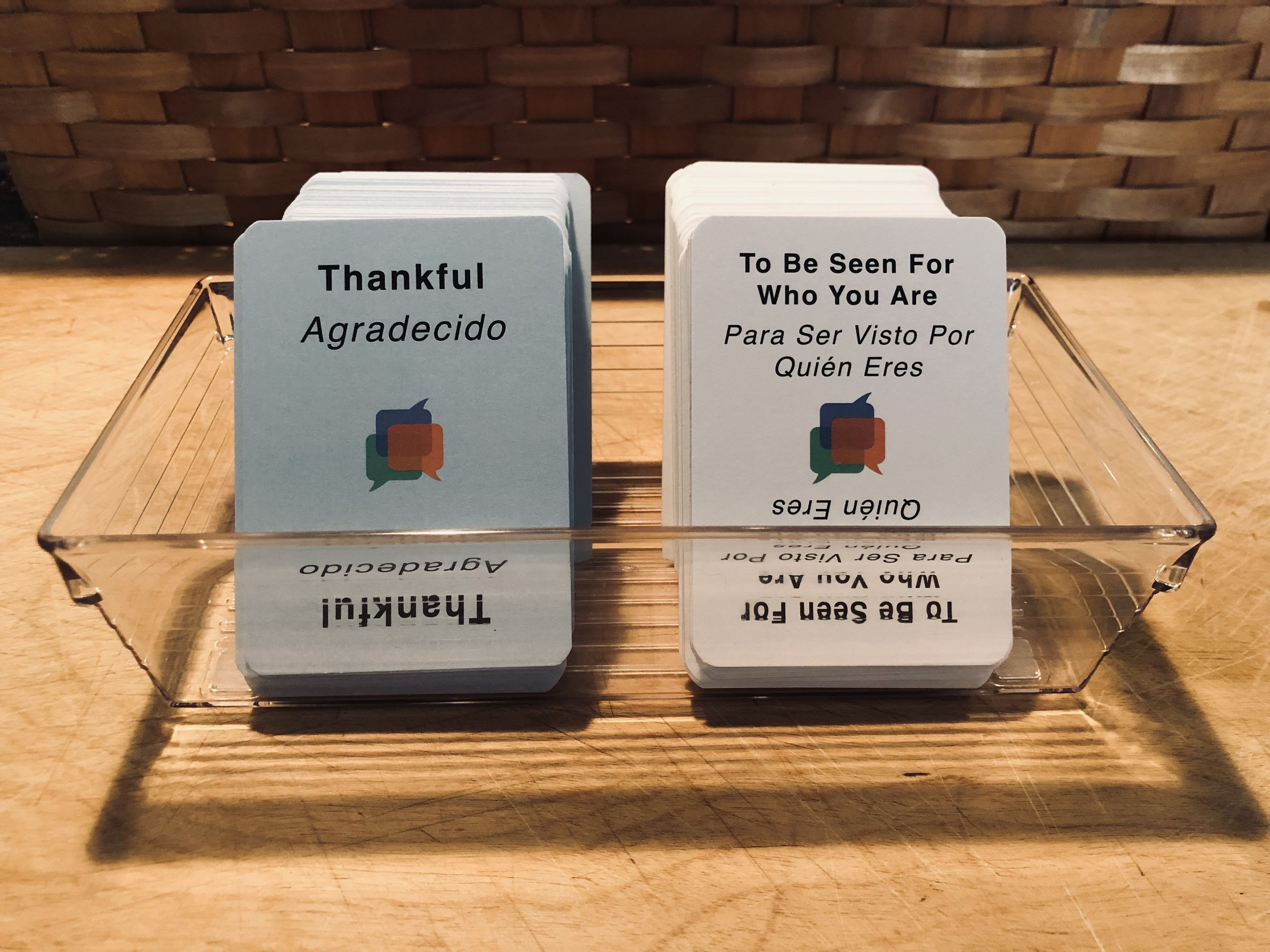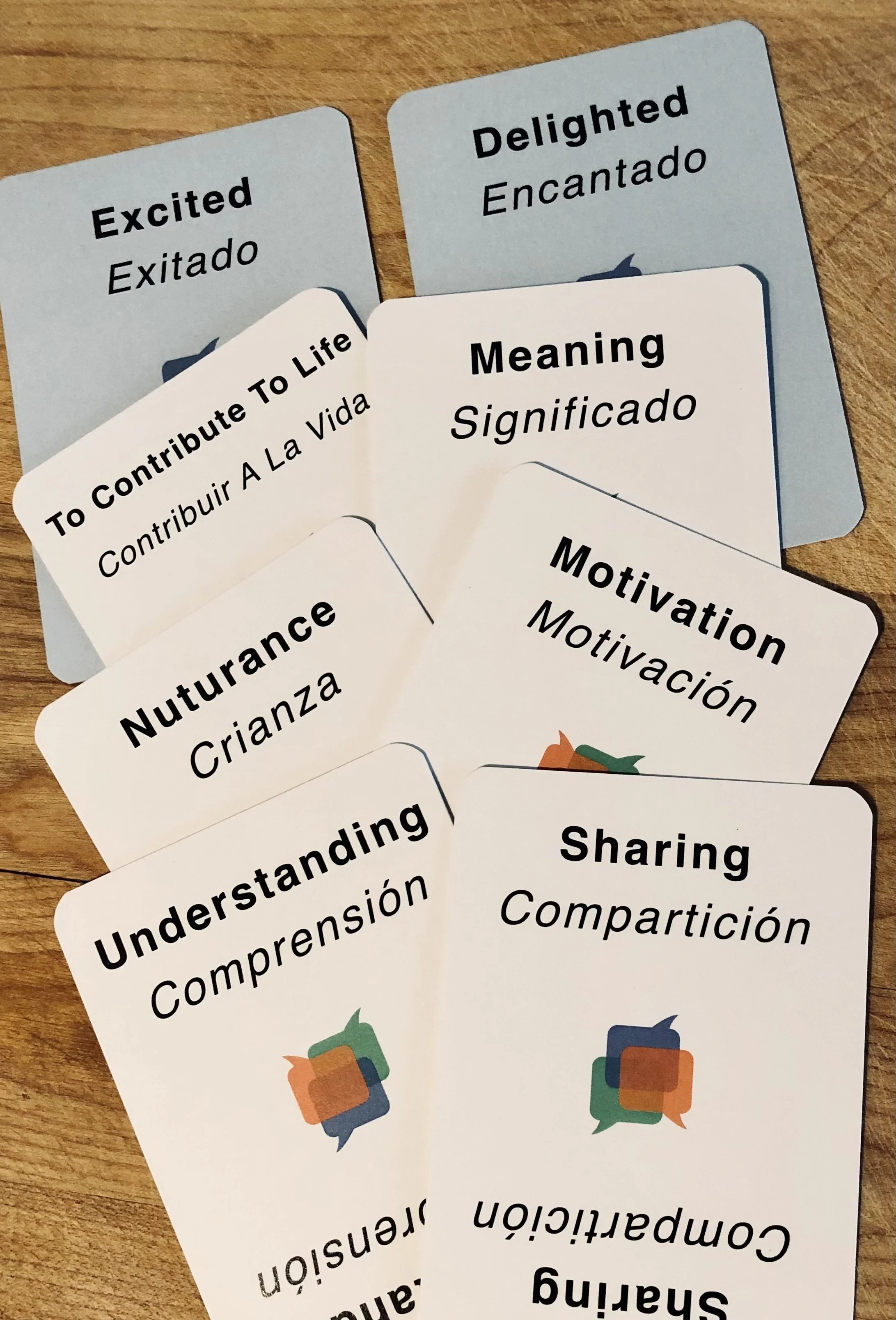
Frequently Asked Questions
-
Ask the Storyteller if they’d like to receive guesses about additional feelings that you may have heard. Be careful with wording.
Try not to not ask a Storyteller if you can tell them a feeling that they didn’t share.
It’s their story, theri feelings, their needs - no matter what the listener wants to add.
If you didn’t hear a feeling that you want to share with them, do so without implying that the Storyteller was somehow deficient - or wrong in identifying their own feelings. Ouch!
Consider a tentative approach while remaining focused on supporting the Storyteller.
For example, you might say that you thought you heard another feeling in addition to what was shared, would they like to hear that? Respect their ‘no.’
Worth repeateing, It’s the storyteller’’s story, their feelings, their needs.
-
For example, the Storyteller says, “I felt like I was run over by a truck.”
Gently encourage the storyteller to look through their cards or lists. The storyteller will find feelings words in the cards or lists that you to connect needs guesses with.
-
Ask the storyteller if they’d like more time to check their cards or lists. If they decline, make your best needs guesses without connecting them to feelings. For example, “Are you experiencing a need for clarity?”
-
Because, in NVC, they aren’t considered needs. They are considered strategies or ways for meeting needs.
I specifically held back on some of these words to encourage participants to look through the decks or lists. Remember, ‘properly’ naming feelings and needs is what helps our brains to calm. Digging a little deeper, finding the ‘proper’ underlying needs words is part of the point of using the cards.
Want to know more? … Listening Game Cards is based on the foundations of Nonviolent Communication (NVC). In NVC, there is a category of words that are often used in lay terms to describe needs but truly serve as strategies or ways of meeting needs.
Listening Game Cards includes several words that NVC practitioners might consider strategies. We consider these words ‘umbrella words’ or needs words tht are commonly used to represent a lot of other needs words.
Because ‘control’ and ‘closure’ are used so frequently, guessers may not look deeper into the needs cards to find the needs that may open doors to identifying the spectrum of needs at play for them. Not exploring the cards or lists could be holding them back.
One way to know when you are working with an ‘umbrella need’ is to ask “what do I (or the storyteller) get if they have (that word) i.e.,‘control’?
For example, most people who feel a need for control may also need, flexibility, knowledge, ease, understanding, trust, to matter and so on.
-
Ask yourself, What do I get if I have ________? For example, what do you get if you have control? Look at the Needs cards. You will likely discover many needs connected to what you perceive, or summarize, or group together under the umbrella of ‘control’.



